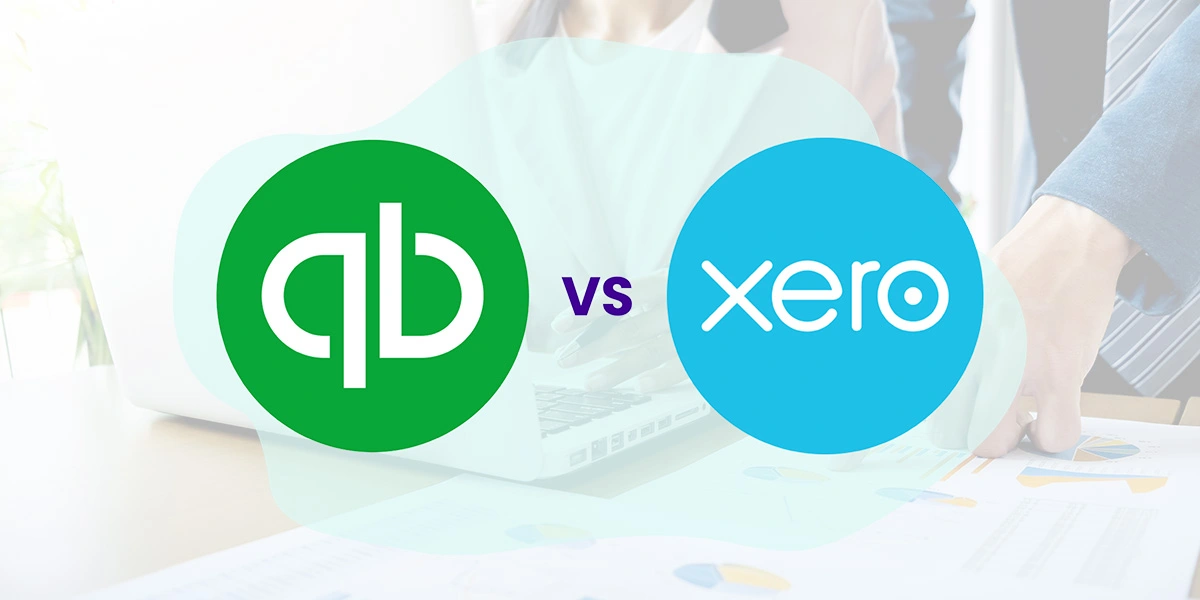As a business owner, selecting the proper accounting software is a critical decision. With a multitude of alternatives to be had, two of the most famous accounting software programmes are QuickBooks and Xero. Both offer similar features, including invoicing, cost tracking, and financial reporting, but they also have some variations.
In this blog, we will examine QuickBooks vs. Xero, which will help you decide which one best suits your business needs.
QuickBooks Overview
QuickBooks is an extensively used accounting software designed particularly for small and medium-sized businesses. According to Intuit, the company that develops QuickBooks, more than 26.56 million businesses use QuickBooks to manage their financial activities.
It has been around since the 1980s and is known for its consumer-pleasant interface and substantial variety of functions, which include:
- Customizable invoicing options
- Expense monitoring and management gear
- Detailed financial reporting
- Bank reconciliation features
- Payroll processing without leaving QuickBooks
QuickBooks offers both online and desktop versions of its software programme, permitting businesses to select the solution that best fits their needs. The online model gives faraway users access to financial records, while the laptop model calls for a one-time purchase and has no month-to-month subscription rate. QuickBooks is also acknowledged for its integration skills, making it easy for businesses to hook up with different equipment and packages to streamline their accounting processes.
Xero Overview:
Xero is a cloud-based accounting software designed to meet the needs of small agencies. As of 2021, Xero has more than 3 million subscribers in over 180 countries. It was founded in 2006 and has since become a popular choice among small commercial business owners. Some of the important features of Xero consist of:
- Easy-to-use invoicing tools
- Expense tracking and management talents
- Customizable financial reporting alternatives
- Bank reconciliation capabilities
One of the fundamental blessings of Xero is its cloud-based platform, which lets users get access to their financial information from anywhere. Additionally, Xero integrates with over 800 third party apps, making it easy for agencies to connect to different tools and streamline their accounting strategies. Xero also offers a range of accessories and integrations that could help corporations control their finances more effectively. Overall, Xero is a low-priced and user-friendly solution for small groups looking to simplify their accounting techniques.
Comparison
Now that we have a top-level view of each QuickBooks and Xero permit, let’s evaluate them aspect by aspect:
Pricing:
As of 2023, QuickBooks offers a range of pricing options, with the online version starting at $25 per month and rising to $150 per month for the most advanced version. The desktop version ranges from $399.99 to $1,299.99, depending on the specific edition and features selected. On the other hand, Xero’s pricing plans are based on the number of invoices, bills, and bank transactions processed per month, with plans ranging from $13 to $70 per month.
User Interface:
QuickBooks has a user-friendly interface and is especially easy to navigate. Xero’s interface is glossy and contemporary and can take some time to get used to.
Features:
Both QuickBooks and Xero provide comparable functions, along with invoicing, cost tracking, financial reporting, and bank reconciliation. However, Xero has more integrations with third-party apps than QuickBooks does.
Customer Support:
QuickBooks offers phone as well as call back, e-mail, and chat support at the same time as Xero gives e-mail help and a community forum.
Mobile App:
QuickBooks and Xero both have mobile apps for iOS and Android devices.
Bank Feeds:
QuickBooks provides automated bank feeds, which means it can connect with your financial institution account and import transactions automatically. Xero additionally provides computerized financial institution feeds, but it can take longer for new bank connections to be set up.
Multi-Currency Support:
Xero gives a multi-foreign currency guide for invoicing and fees, which can be beneficial if your business deals with customers or providers in a couple of international locations. QuickBooks offers multi-currency feature as well, but best in its premium-priced plans.
Dashboard Customization:
Xero allows for more customization of the dashboard, allowing customers to add or dispose of widgets, exchange the layout, and create custom issues. QuickBooks offers much less flexibility in this area.
Customer Relationship Management (CRM) Integration:
If you want a CRM to control your patron interactions, Xero offers integrated integration with Salesforce, while QuickBooks simplest offers integration with a few CRM equipment.
Payment Gateways:
Xero offers greater payment gateway alternatives than QuickBooks, making it less complicated to simply accept bills from customers. However, QuickBooks offers a more streamlined fee structure.
Inventory Management:
QuickBooks has more widespread inventory control capabilities than Xero, allowing customers to set stock degrees, set reorder factors, and create buy orders. Xero’s stock management features are more fundamental and won’t be appropriate for companies with complicated inventory needs.
Time Tracking:
QuickBooks has an integrated time monitoring function, which can be useful for businesses that invoice by the hour. Xero does not yet have an integrated time tracking feature; however, it is able to integrate with third-party time monitoring gear.
Which one is right for your business?
QuickBooks and Xero are both exquisite accounting software applications, but which one is right for your business? Here are some matters to recall:
Budget:
If you’re in good financial shape, Xero can be a better choice, as it is usually much less expensive than QuickBooks.
Features:
If you require particular capabilities, consisting of payroll control, QuickBooks can be the better option, as it has more good-sized payroll control capabilities than Xero.
Integrations:
If you operate a lot of third-party apps, Xero can be a better alternative, as it integrates with more apps than QuickBooks does.
User Interface:
If you decide on a user-friendly interface, QuickBooks can be the better choice, as it’s miles less difficult to navigate than Xero.
Conclusion
In conclusion, choosing the right accounting software for your business is crucial, and QuickBooks and Xero are two popular options worth considering. Both have similar features, but they differ in pricing, user interface, integrations, and customization options.
To determine which one is the best fit for your business, you should consider your budget, specific needs for features, integrations with third-party apps, and preference for a user-friendly interface. Consulting with a professional bookkeeping and accounting company, such as Transcounts, can also help you make an informed decision.
Transcounts offers comprehensive bookkeeping and accounting services that can help you manage your finances effectively. Our team of experienced professionals can guide you through the process of selecting the right accounting software for your business and provide ongoing support to ensure your financial records are accurate and up-to-date.
Contact Transcounts today at www.transcounts.com to learn more about our services and how we can help you simplify your bookkeeping and accounting processes.
Contents





